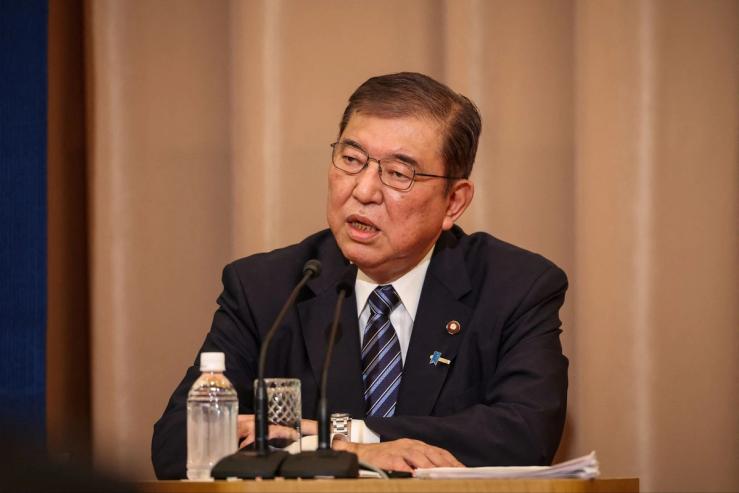The News
Shigeru Ishiba will become Japan’s next prime minister after he was elected as the new leader of the country’s ruling Liberal Democratic Party on Friday. He replaces Fumio Kishida, who unexpectedly announced in August that he would not run again, sparking a race within Japan’s ruling party to replace him.
Ishiba, a former defense minister who has called for the creation of an Asian NATO, will face a full in-tray: The governing LDP has been rocked by a series of scandals, relations with China are tense, and inflation is at a 30-year high. Ishiba faces “big tests at home and abroad,” The Economist wrote.
SIGNALS
Ishiba will give Japan’s central bank a freer hand in raising interest rates
Ishiba has vowed to defeat the deflation that has plagued Japan for decades, and analysts see his win as “removing one roadblock” for the Bank of Japan to raise interest rates further, Reuters reported. Some predict the next rate hike could come as soon as December. Ishiba is likely to respect the central bank’s decisions and empower it to normalize monetary policy, one economist told Reuters. His economic agenda will be similar to that of outgoing leader Kishida, but it’s clear that with Ishiba in power, “Japan is bidding farewell to Abenomics,” the economist said, referring to former Prime Minister Shinzo Abe’s aggressive set of economic policies that had mixed results in pulling the country of its deflationary slump.
Some denounce Ishiba’s ‘Asian NATO’ as fantasy
Ishiba, a security hardliner whose office walls are reportedly lined with models of aircraft and ships he built himself, has alarmed US officials with his ambitions to remake Japan’s military alliance with Washington and to establish an “Asian NATO” to counter China’s growing threat. The US hasn’t warmed up to the idea, and a former National Security Council official told Nikkei that it is “something of a fantasy.” Attempts to create an Asian NATO would also “certainly backfire,” a Stimson Center think tank fellow said, because most Asian countries “do not want to choose a side in the U.S.-China rivalry.”


